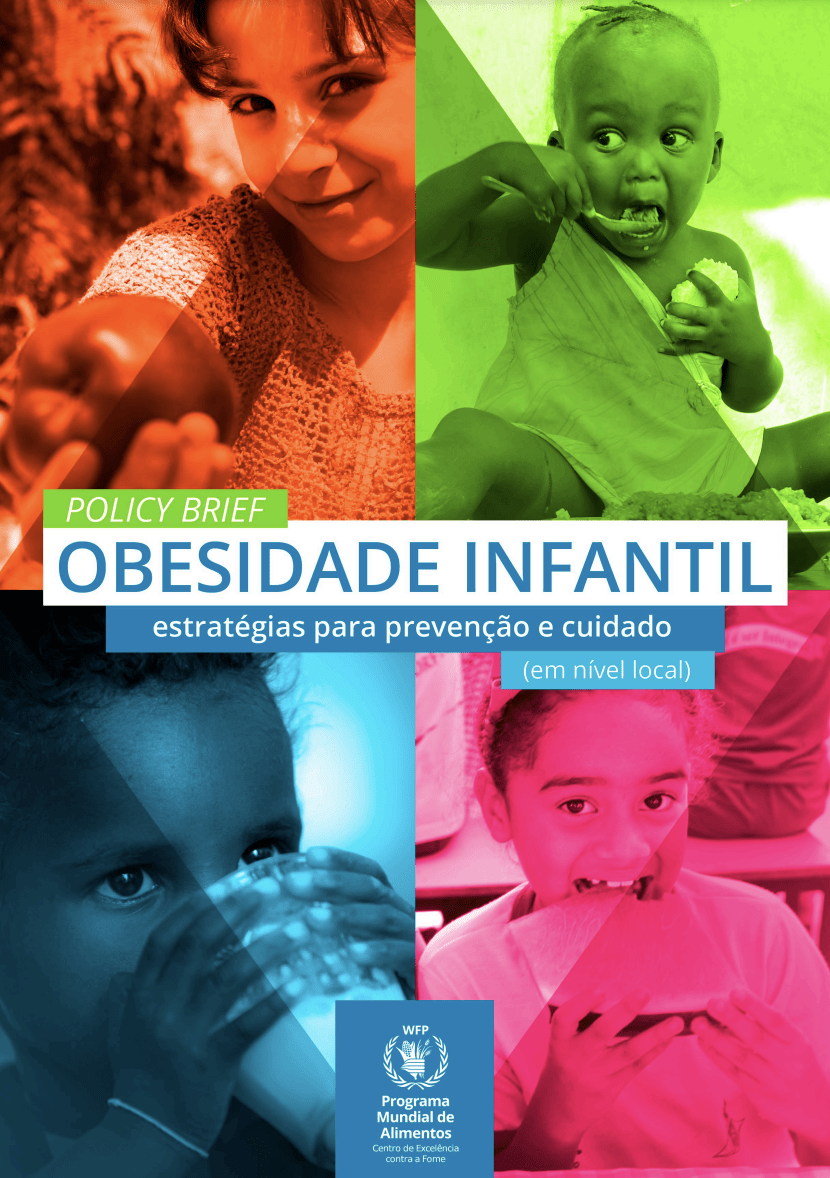Malnutrition, in all its forms, has already been understood and addressed as a public health issue, but the emerging reality indicates that the combination of malnutrition and obesity, known as the multiple burden of malnutrition, demands equal attention. This coexistence of micronutrient deficiencies and malnutrition combined with overweight and obesity in the same population has been striking nations in the global South with unprecedented speed. Necessary actions that address both dimensions simultaneously are a must for countries to implement effective health public policies.
Taking this into account, the WFP Centre of Excellence against Hunger Brazil, the Brazilian Cooperation Agency and the Ministry of Health, through the Food and Nutrition Coordination of the Department of Health Promotion, launched a South-South Cooperation project named Nurture the Future in 2020.

The Nurture the Future project is a South-South Cooperation Project to tackle the Multiple Burden of Malnutrition in School-aged Children results from a partnership between the Ministry of Health, the WFP Centre of Excellence Against Hunger, the Brazilian Cooperation Agency, and the Ministry of Foreign Affairs. This horizontal knowledge exchange, especially regarding the fight against childhood overweight and obesity, aims to support processes to strengthen national public institutions and health and nutrition sectors considered fundamental for the management of public food and nutrition policies in partner countries.
The project emphasizes that a set of intersectoral measures and programmes is necessary to improve the nutritional and food profile of populations and the only way forward is through collaborative efforts. It searches for synergies and complementarity with other Brazilian and international initiatives in the sector, as well as with other activities developed by WFP offices in Colombia and Peru.
To tackle this global health challenge, the project team published two policy briefs that highlight key actions that policymakers ought to take for putting the health of children back on track, which in turn will bring economic, social and health gains to humanity.

The first policy brief (available in Portuguese & Spanish) presents information to contribute to the development of strategies by public managers at the local level (municipal and state managers) for the prevention and care of childhood obesity.
Childhood obesity is a global health challenge and its constantly growing prevalence also poses difficulties for cities. For that reason, health-promoting environments – which favor an adequate and healthy diet – and the practice of physical activity are important factors for preventing obesity at this stage of life. This Policy Brief presents information that aims to contribute to the development of strategies by public managers at the local level (municipal and state managers) for the prevention and care of childhood obesity. The document consists of six questions and objective answers to facilitate understanding of a topic so sensitive that it can change the reality of cities.
The second publication (available in Portuguese & Spanish) highlights experiences from Brazil, Colombia, and Peru and outlines some simple steps for governments to take on the prevention and care of obesity.
Obesity among children and adolescents is the result of a complex series of genetic, individual, behavioural and environmental factors that act in multiple contexts. For the prevention and care of obesity, it is essential to adopt intersectoral policies and measures to reverse environments that promote obesity. This document brings the experiences from Brazil, Colombia and Peru in this area, as part of the South-South Cooperation Project to Tackle the Multiple Burden of Malnutrition in Schoolchildren (Nurture the Future), developed in partnership with the Ministry of Health and the Brazilian Cooperation Agency.

